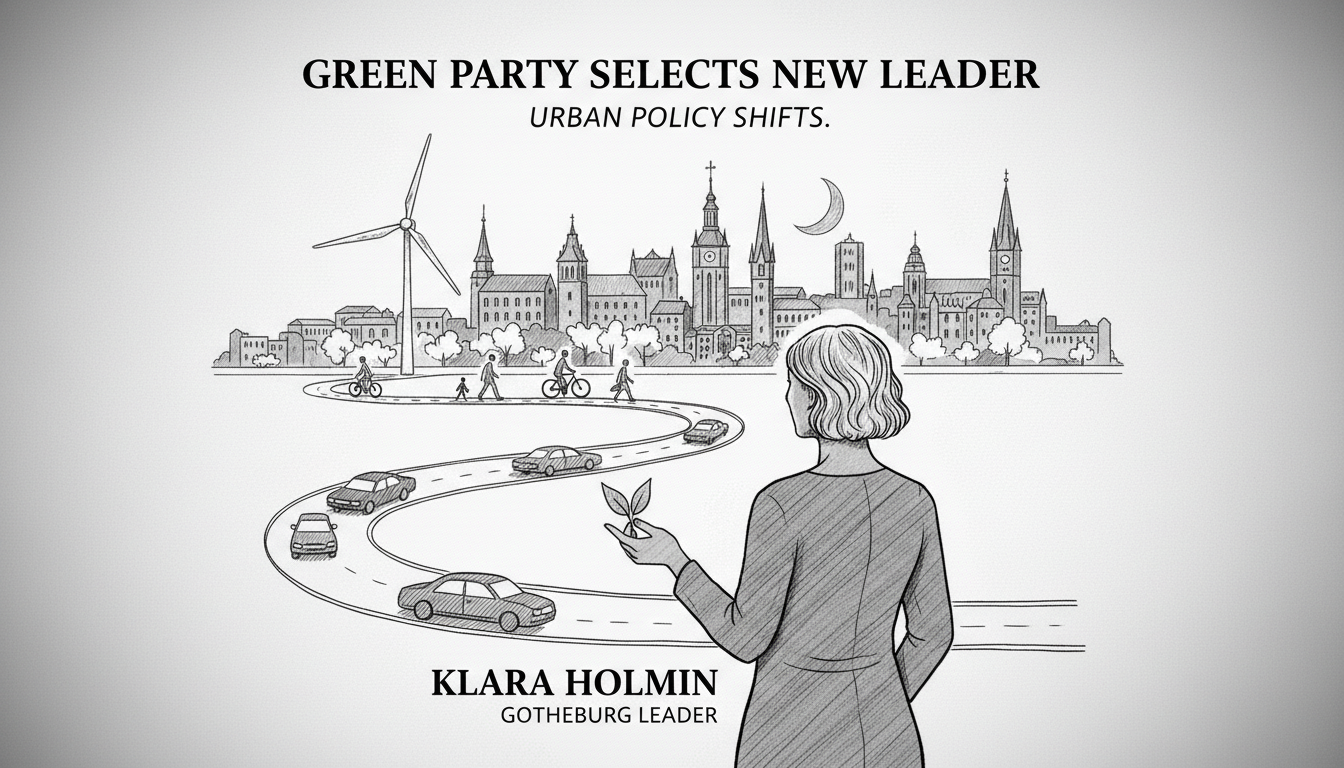Klara Holmin will become the Green Party's new parliamentary group leader in Gothenburg following the upcoming municipal elections. Her selection signals a strategic shift toward greater emphasis on social sustainability within urban environmental policy. Holmin intends to maintain pressure for reduced car traffic in the city center despite acknowledging potential backlash from opponents.
The incoming leader expressed her political philosophy with direct clarity. 'I cannot stand by and watch when things go wrong,' Holmin stated in her first public comments after the selection. This approach suggests a more assertive stance on environmental policies within Sweden's second-largest city.
Gothenburg represents a critical testing ground for the Swedish government's broader environmental agenda. The city's transportation policies often influence national discussions about urban planning and climate goals. Municipal decisions here frequently inform Riksdag decisions on environmental legislation and funding allocations.
Holmin's focus on social sustainability marks an important evolution in Swedish environmental politics. This approach connects traditional ecological concerns with housing accessibility, public transportation equity, and community welfare. Such integrated policy thinking reflects changing priorities within Stockholm politics and broader Swedish Parliament discussions.
The Green Party's position in Gothenburg carries particular significance for government policy Sweden implementation. Municipal governments serve as crucial proving grounds for national environmental initiatives. Local successes or failures often determine whether policies expand to other regions or receive additional Riksdag support.
Urban transportation represents one of Sweden's most contentious political issues. Previous attempts to reduce car usage have generated substantial public debate. Holmin's commitment to continuing this push demonstrates the Green Party's willingness to confront difficult policy challenges despite potential political costs.
The selection process occurred through the party's internal democratic mechanisms common in Swedish political organizations. Local members evaluated candidates based on their policy positions and leadership capabilities before making their final determination. This process mirrors the broader democratic systems operating within the Riksdag building and government districts nationwide.
Gothenburg's environmental policies frequently receive attention from national policymakers based in Rosenbad. The city's experiments with congestion pricing, bicycle infrastructure, and public transit innovations often inform national policy discussions. Successful implementations here can shape broader government policy Sweden development.
Holmin's leadership will face immediate tests following the elections. She must balance environmental objectives with economic practicalities and social needs. This challenge reflects the complex calculations facing Swedish politicians at both municipal and national levels as they develop comprehensive sustainability strategies.

